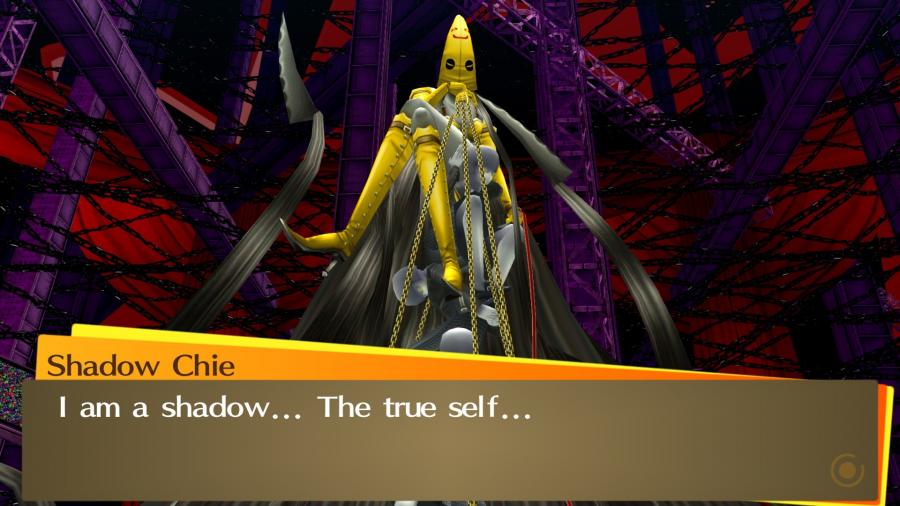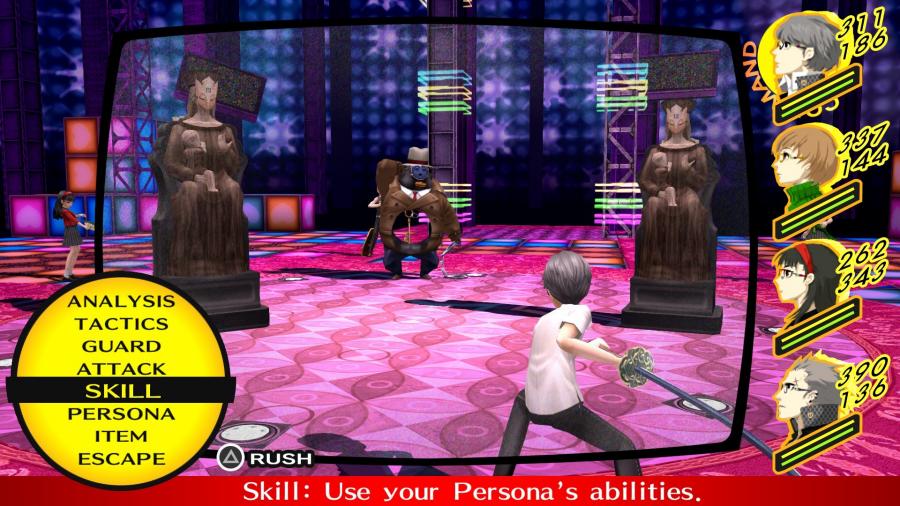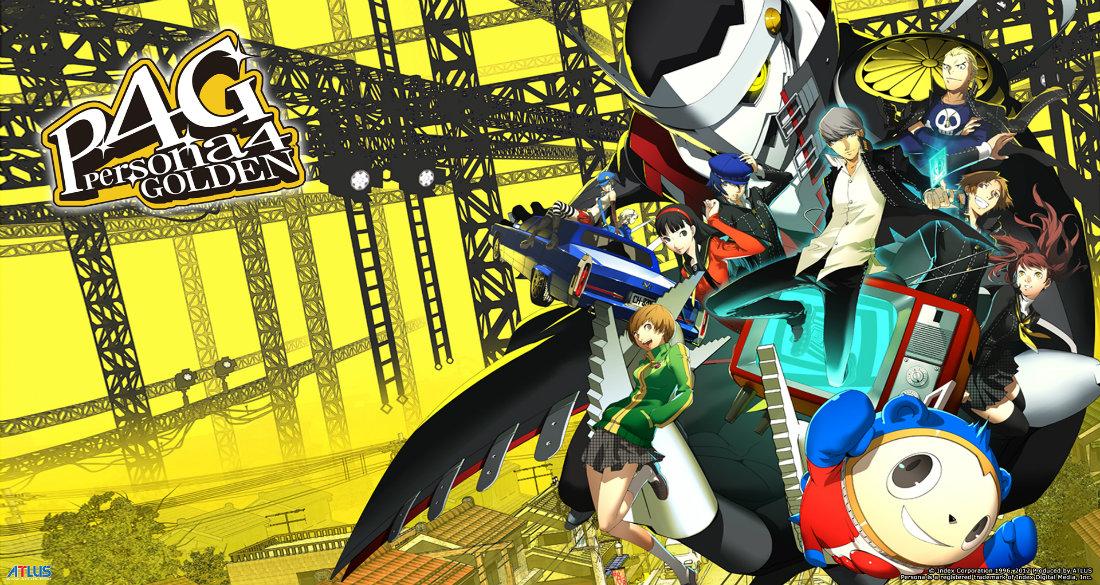
GAME REVIEW: Persona 4 Golden (PC)
When it comes to turn-based RPG“s, Persona 4 is a game that I have deep fondness for, even in the context of the series. I first discovered the Shin Megami Tensei series on the PlayStation 2, and Persona 4 was one of my earliest gateways into the world of MegaTen. I connected with the characters of Persona 4 quickly, and enjoyed the quiet, small-town charm of Inaba in the long hours in the time I spent with it. Though the initial attraction is the mystery of the Inaba serial killer, Persona 4 is a game I still occasionally revisit because of the story and characters. With the arrival of the expanded version, Persona 4 Golden, to the PC, it“s a good opportunity for old fans and new to experience this modern JRPG classic.
The story of Persona 4 remains relatively unchanged, though the Golden version offers some additions that were not in the original PS2 release. Much like the Royal re-release does for Persona 5, Persona 4 Golden offers additional content to the original game, including several months of in-game time, new Social Links, new areas of Inaba to explore, and an additional dungeon towards the end of the game. The result is a more complete game than the PS2 original, showing new scenes with your party members and adding depth to the original game. The PC port includes all the Golden content that was originally on the PlayStation Vita, as well as a few PC-specific options that should allow PC players to customize their individual experiences.

The core experience of Persona 4 is the draw of the game, and mainly that will keep you drawn into the game, especially if you“re a fan of turn-based JRPG“s. Though not as intricately tactical as Persona 5 Royal or as challenging as Persona 3 FES, the combat is fun if you“ve missed the turn-based style. Like other games in the series, the object is to pinpoint and exploit elemental weaknesses, using your Persona-based powers strategically. Once all enemies are downed with their weaknesses, this allows your party to use an “All-Out Attack”“ that will destroy most enemies outright and damage bosses noticeably. The P4 system is more simplistic than P5 does it, as it doesn“t include firearms, Baton Passes, or Technical attacks. At times, this may feel repetitive, especially when exploring some of the later dungeons, but the challenge of the enemies increases just enough to keep the battles interesting. Still, the card selection at the end of battle can be fun, especially with the rewards you receive if you play the minigame well. The core gameplay loop of Persona 4 works effectively enough, even if Atlus was able to improve on it with the most recent installment.
However, the draw of the Persona series lies in its rich storytelling, and Persona 4 has one of the more entertaining stories in the series. The central premise is that the protagonist (which the player names) is a transfer student from the city to Inaba, a small town in Japan. While there, he runs across mysterious deaths that are connected to a strange TV-inspired world. At the same time, there are strange rumors of a Midnight Channel that supposedly foretell the viewer“s soulmate, though the reality of it is far stranger and more dangerous. The protagonist acquires the power of the wild card, allowing him to possess different powers to use in his investigation. He“s joined by a group of high school students who are all affected by the Midnight Channel and the TV world, all of whom possess Persona abilities of their own. The story still holds up quite well, even for a game released at the end of the PS2 era, and the characters are still entertaining to spend time with.

That“s not to say the game is perfect, even with the many improvements with Golden and the PC port. I“ve found the only exception to the high quality of the characters is the team mascot Teddie, who can be grating because of his voice and personality, but even he grows on the player somewhat over time. The team members“ repeated insistence on denying their Shadow selves in the TV world can also be a bit facepalming as well, since that only strengthens the boss Shadows you fight, but it sets up necessary plot points to get the story moving along. The PC port is generally good, with better visual quality than I remember on Vita. However, during my playthrough, I experienced occasional crashes and freezes during cutscenes that forced me to restart from my last save. Still, the option to fast-forward through cutscenes mitigates the annoyance somewhat, and I“m not aware of many users having the same issues, so it may well work better for you.
Be warned, there is Denuvo anti-piracy software installed on the game, and that is an understandable reason to wait until its removal to play the game. I strongly dislike the use of this kind of DRM, as it discourages players far more than pirates. Denuvo is a burdensome form of DRM on the playing audience, and I hope Atlus decides to remove it quickly. In fairness, I didn“t notice any slowdown in performance on PC even with Denuvo installed, and if anything, the game moves surprisingly fast in terms of framerate. If you have a newer PC, it“s very likely that Persona 4 Golden will move at lightning speeds, and this may take some adjustment while exploring the dungeons. Even so, I question the use of Denuvo on a game that“s well over a decade old, even if it is a well-regarded entry in a popular series.

For all those issues, I still recommend buying Persona 4 Golden on PC if you“ve never played a Persona game before. $20 for the Steam version is a reasonable price, and the PC performance makes the game much faster than it is on PS2 or Vita. The real reason to buy this game is to enjoy spending time with these characters and soaking in the setting of Inaba, and to experience the mystery of the Midnight Channel Killer. All of these points are translated intact, and this game is well worth playing for those alone. All in all, Persona 4 Golden is an excellent starting point for new fans of the series, and a welcome return for old-school players.
Score: 4.5/5
Publisher: Sega/Atlus
Author Profile
- Steve Sellers had been a fan of superheroes ever since Superman: The Movie. But it took the JSA, the Legion of Super-Heroes, Dragonlance, Lord of the Rings, Twilight Zone, and Chris Claremont's legendary run on the X-Men to make him a writer and a longtime fan of comics, fantasy, and science fiction. Steve is the co-creator of WHITE DRUID & MICHAEL NERO and GUARDIANS OF ELAYIM for Omen Comics, and he is also the creator of BLITZ and SHOCKWAVE for Revelation Comics (an imprint of Omen Comics).









